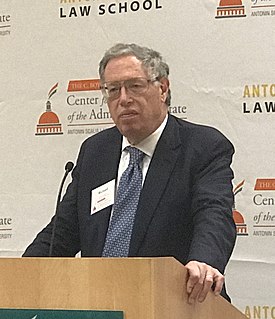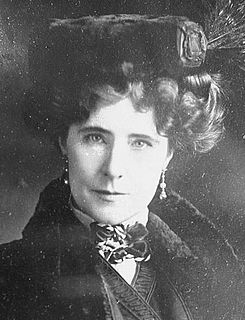A Quote by Mason Cooley
The power of the past does not depend on our knowledge of it.
Related Quotes
America's greatness is due in no small measure to our system of government, in which power and authority are deliberately divided. The separation of powers is not a mere "technicality." It is the centerpiece of our Constitution. Our freedoms depend upon it in the future, just as they have in the past.
We should not be content to say that power has a need for such-and-such a discovery, such-and-such a form of knowledge, but we should add that the exercise of power itself creates and causes to emerge new objects of knowledge and accumulates new bodies of information. ... The exercise of power perpetually creates knowledge and, conversely, knowledge constantly induces effects of power. ... It is not possible for power to be exercised without knowledge, it is impossible for knowledge not to engender power.
Our character is composed of our ideas and our feelings: and, since it has been proved that we give ourselves neither feelings nor ideas, our character does not depend on us. If it did depend on us, there is nobody who would not be perfect. If one does not reflect, one thinks oneself master of everything; but when one does reflect, one realizes that one is master of nothing
Surely knowledge of the natural world, knowledge of the human condition, knowledge of the nature and dynamics of society, knowledge of the past so that one may use it in experiencing the present and aspiring to the future--all of these, it would seem reasonable to suppose, are essential to an educated man. To these must be added another--knowledge of the products of our artistic heritage that mark the history of our esthetic wonder and delight.
We have heard of a Society for the Diffusion of Useful Knowledge. It is said that knowledge is power, and the like. Methinks there is equal need of a Society for the Diffusion of Useful Ignorance, what we will call Beautiful Knowledge, a knowledge useful in a higher sense: for what is most of our boasted so-called knowledge but a conceit that we know something, which robs us of the advantage of our actual ignorance? What we call knowledge is often our positive ignorance; ignorance our negative knowledge.
True prayer is done in secret, but this does not rule out the fellowship of prayer altogether, however clearly we may be aware of its dangers. In the last resort it is immaterial whether we pray in the open street or in the secrecy of our chambers, whether briefly or lenghtily, in the Litany of the Church, or with the sigh of one who knows not what he should pray for. True prayer does not depend either on the individual or the whole body of the faithful, but solely upon the knowledge that our Heavenly Father knows our needs.
A mind does not receive truth as a chest receives jewels that are put into it, but as the stomach takes up food into the system. It is no longer food, but flesh, and is assimilated. The appetite and the power of digestion measure our right to knowledge. He has it who can use it. As soon as our accumulation overruns our invention or power to use, the evils of intellectual gluttony begin,— congestion of the brain, apoplexy and strangulation.




































